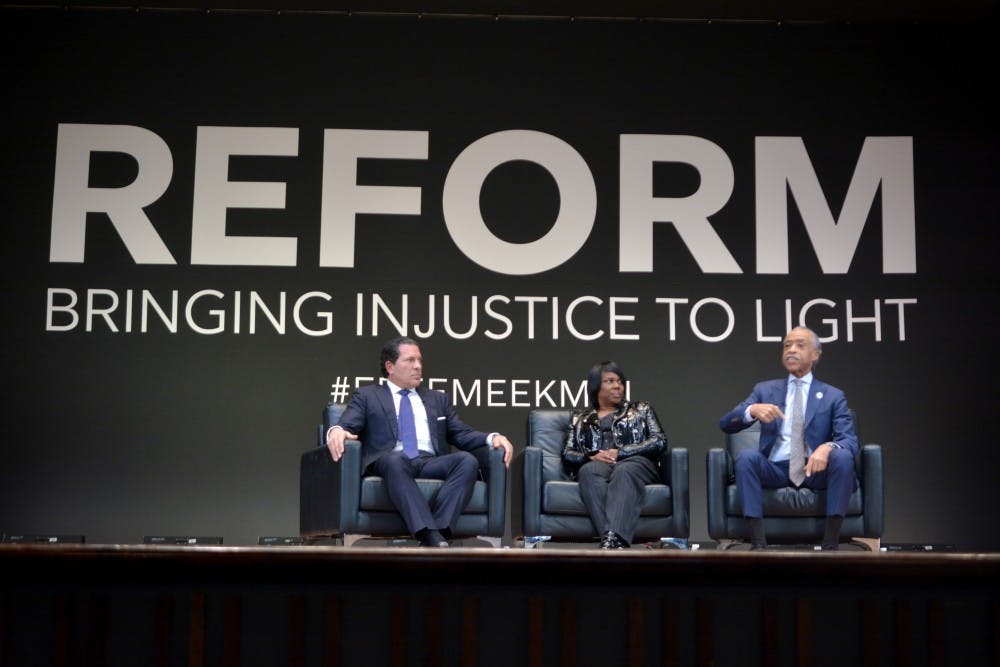
Meek Mill was released from prison on April 24 after his sentence generated a national criminal justice reform movement led by his supporters and advocates.
The Pennsylvania Supreme Court granted Mill “extraordinary relief,” overturning the 2-4 year sentence he received for parole violations in November from Court Judge Genece Brinkley. Brinkley most recently denied Mill bail and upheld the sentence.
Much controversy has surrounded Brinkley’s proceedings over this case with questions concerning her impartiality. This case also raised questions about the credibility of Mill’s arresting officer, who appeared on a disclosed list of past and current police officers with histories of misconduct.
In 2008, Mill was initially convicted and served eight months in prison for drug and gun possession, before serving a five year parole sentence that has been extended due to claimed violations.
Mill’s lawyer Joe Tacopina has repeatedly argued that Mill has been the subject of unfair criminal proceedings.
“As we have said all along, Meek was unjustly convicted and should not have spent a single day in jail,” Joe Tacopina said in a statement to the New York Times.
Many of Meek Mill’s supporters have argued that his case is a testament to the issues present in the criminal justice system. They have said that it serves as an example of how the existing probation and parole systems perpetually police individuals after being released from prison.
At a recent #FreeMeekMill event, which was held at Penn's Irvine Auditorium, Reverend Al Sharpton noted that it was essential to make an example out of Meek Mill’s predicament, with his fight for release serving as a model for “Meek Mills everywhere.”
Meek Mill posted a series of tweets upon his release on Tuesday evening, expressing his appreciation for his family, supporters, and the District Attorney’s office for their advocacy. He also detailed his commitment to using his platform to leverage those without his same resources, describing the past five months of his sentence as a nightmare.
“To the Philly District Attorney’s office, I’m grateful for your commitment to justice,” Mill said. “I understand that many people of color across the country don’t have that luxury and I plan to use my platform to shine a light on those issues.”
Mill also said that he looks forward to returning to his family and music career, as he continues fighting to overturn his “unwarranted conviction” alongside his legal team.
“In the meantime, I plan to work closely with my legal team to overturn this unwarranted conviction and look forward to reuniting with my family and resuming my music career,” Mill said.
The Daily Pennsylvanian is an independent, student-run newspaper. Please consider making a donation to support the coverage that shapes the University. Your generosity ensures a future of strong journalism at Penn.
Donate



